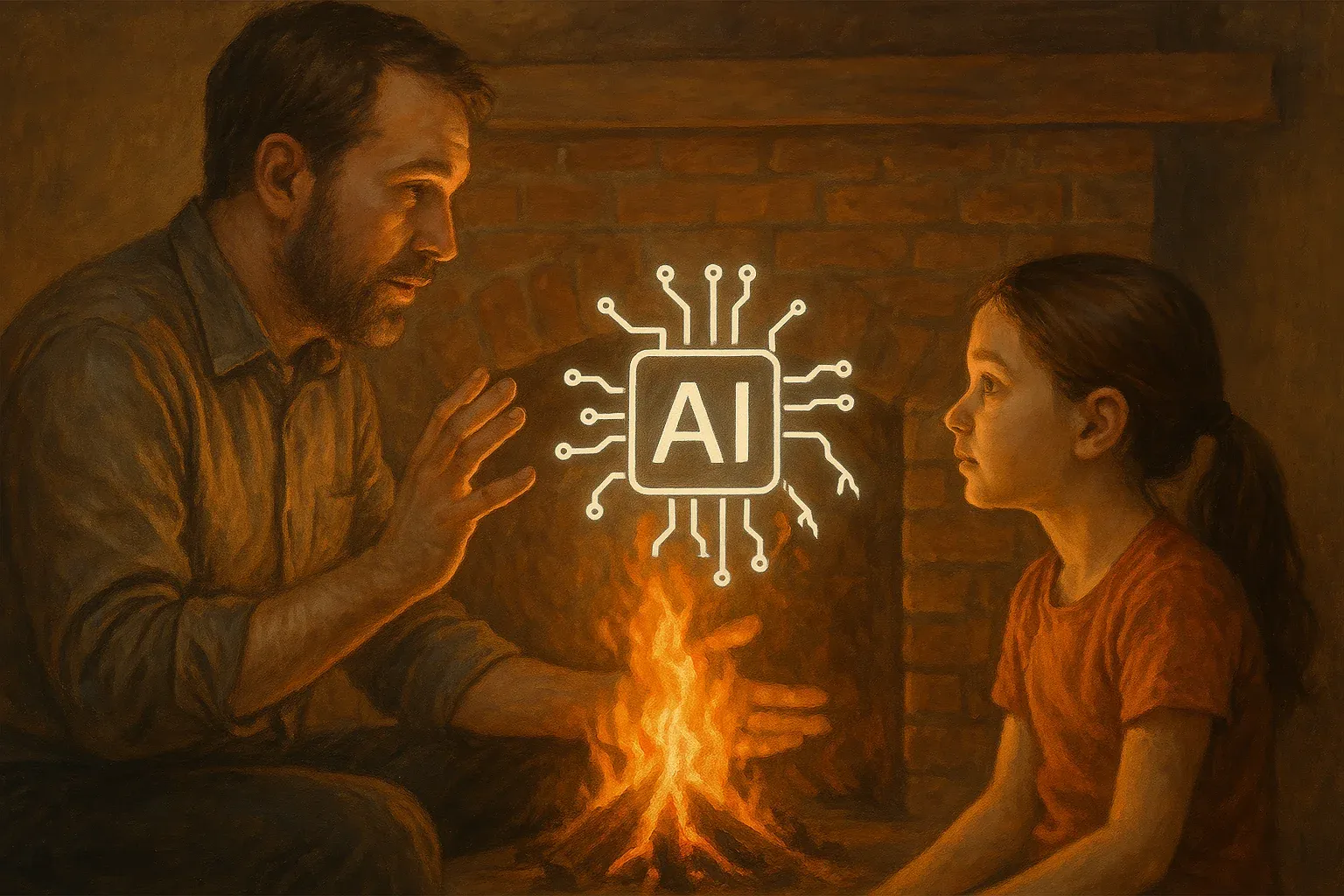Ethics? Oh Yeah, AI Forgot to RSVP
A different look at AI’s ethical oversight exposes the hidden risks in tech’s unchecked growth.

The accelerating pace of artificial intelligence development has been nothing short of mind-blowing. After spending over two decades immersed in computational linguistics and natural language processing, I find myself simultaneously exhilarated and concerned by how rapidly AI is transforming our world.
Remember when we thought of AI as something from science fiction novels? That future is emphatically here. Just this morning, I chatted with my smart home system about the day’s schedule, adjusted my smart thermostat with a voice command, and let my car navigate traffic to my destination. These everyday AI interactions would have seemed like wizardry just 15 years ago. The line between magic and reality? It’s officially blurred.
Breakthrough Technologies Reshaping Our Reality
The breakthroughs in AI research labs today are nothing short of revolutionary. DeepMind’s work on protein folding has potentially fast-tracked medical research by decades, solving problems biochemists have wrestled with for generations. Their AlphaFold system now predicts protein structures with jaw-dropping accuracy, possibly revolutionizing drug discovery and disease treatment. Who needs a crystal ball when AI’s already cracking life’s mysteries?
Meanwhile, NVIDIA’s specialized AI chips quietly power everything from next-level gaming to autonomous driving systems. Their GPU architecture has become the backbone of modern AI computation, enabling neural networks to process data at speeds we once only dreamed of. What used to demand massive data centers now fits in your car or even your pocket. Small tech, big wins.
The Ethical Dimensions We Can’t Ignore
But here’s what keeps me up at night: the profound ethical questions trailing this tech revolution. These aren’t dusty philosophical musings. They’re urgent, practical concerns about equity, fairness, and human dignity.
The AI ethics conversation needs to leap from academic journals into boardrooms, legislative chambers, and dinner table debates. Who’s cashing in on these technologies? Who’s getting burned? How do we ensure AI reflects our diverse human values instead of turbocharging existing biases? Spoiler: it’s not a simple fix.
Real-World Impacts Today
AI’s already reshaping industries and daily life in ways we can’t unsee. A colleague in financial services recently showed me how AI-powered analytics tools are democratizing slick investment strategies once reserved for the ultra-rich. Machine learning algorithms now analyze market patterns and whip up personalized investment tips for the average Joe. Wall Street’s secret sauce? It’s on the table for everyone.
But there’s a flip side we can’t ignore. On a recent visit to a logistics center, I saw a warehouse where robots outnumbered humans by a landslide. The efficiency was dazzling, but the job loss implications hit hard. These aren’t just grunt-work gigs vanishing. Sophisticated AI systems are creeping into roles across the economic spectrum. Progress comes with a price tag.
Deepfakes and Information Integrity
Here’s where it gets downright spooky: AI’s knack for undermining information integrity. I recently stumbled across a deepfake video so convincing it threw my grip on reality for a loop. The tech to craft totally fabricated, utterly believable videos of public figures saying or doing things they never did is racing ahead. This isn’t just a parlor trick. It’s a sledgehammer to the foundation of evidence and truth in public discourse.
Balancing Innovation and Responsibility
Despite these red flags, I’m still cautiously optimistic. AI could tackle humanity’s thorniest challenges, from climate change modeling to personalized medicine. The catch? It’s all about how we steer this ship.
We need smart regulation that fuels innovation while setting up guardrails against harm. We need diverse voices shaping AI to ensure it serves humanity broadly, not just a lucky few. And we need digital literacy to help people navigate this AI-saturated world. It’s a tall order, but the stakes are sky-high.
Moving Forward
When I talk AI with my daughter, I often compare it to fire: humanity’s first game-changing tech. Fire can warm your home or torch it to ashes. It’s not good or evil on its own. Its impact hinges on how we wield it. AI’s the same deal, demanding nuance and careful handling.
As we teeter on this technological tipping point, our biggest job is to stay engaged. Ask tough questions about the AI systems popping into your life. Weigh their broader societal ripple effects. Back policies that spread AI’s benefits far and wide.
This isn’t just another tech fad. It’s a seismic shift in human capability with epic implications for our future. By embracing AI’s potential while keeping our eyes wide open to its risks, we can nudge this powerhouse toward its noblest goal: boosting human potential while honoring human dignity.
The AI revolution isn’t looming on the horizon. It’s here, knocking on your door. How it plays out? That’s up to the choices we make today. Want to dive deeper into artificial intelligence and its future? Check out this comprehensive guide to AI and its implications.
As futurist Ray Kurzweil put it:
“Sometimes people talk about conflict between humans and machines, and you can see that in a lot of science fiction. But the machines we’re creating aren’t some invasion from Mars. We build these tools to expand our reach.”
He’s right. AI’s not here to replace us. It’s a megaphone for human creativity and problem-solving, amplifying what we’re capable of. Let’s make sure it sings the right tune.
Stay Raw | Stay Real | Stay Intense.
